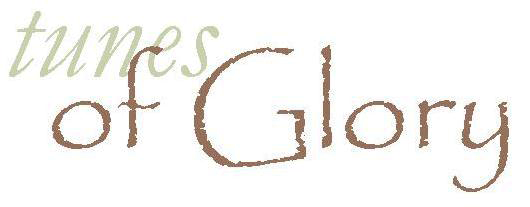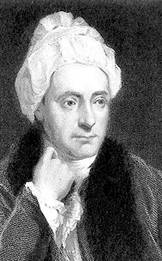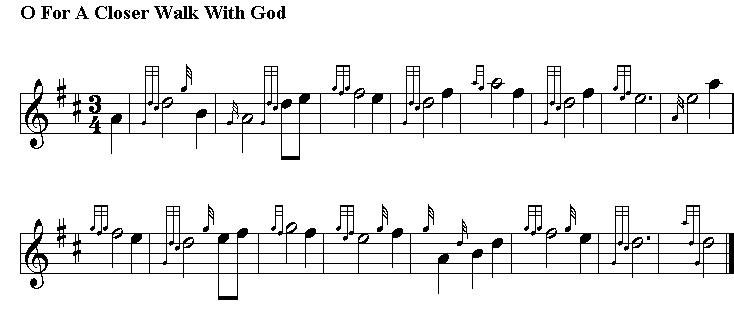 |
||||||

Best viewed in
|
O For a Closer Walk with God
After recovering, he settled at Huntingdon with a retired clergyman named Morley Unwin and his wife Mary. Cowper grew to be on such good terms with the Unwin family that he went to live in their house, and moved with them to Olney, where John Newton, a former slave trader who had repented and devoted his life to the gospel, was curate. Not long afterwards, Morley Unwin was killed in a fall from his horse, but Cowper continued to live in the Unwin home and became extremely attached to Mary Unwin. At Olney, Newton invited Cowper to contribute to a hymnbook that Newton was compiling. The resulting volume known as Olney Hymns was not published until 1779 but includes hymns such as "Praise for the Fountain Opened" (beginning "There is a fountain fill'd with blood") and "Light Shining out of Darkness" (beginning "God moves in a mysterious way") which remain some of Cowper's most familiar verses. Several of Cowper's hymns, as well as others originally published in the "Olney Hymns," are today preserved in the Sacred Harp. O For a Closer Walk with God appeared in Conyer’s Collection of Psalms and Hymns, 1772. About these lines, Cowper wrote to his aunt:
In 1773, Cowper, now engaged to marry Mrs. Unwin, experienced a new attack of insanity, imagining not only that he was condemned to hell eternally, but that God was commanding him to make a sacrifice of his own life. This attack broke off the engagement, but Mary Unwin took care of him with great devotion, and after a year he began again to recover. In 1779, after Newton had left Olney to go to London, Cowper started to write further poetry. Mary Unwin, wanting to keep Cowper's mind occupied, suggested that he write on the subject of The Progress of Error, and after writing his satire of this name he wrote seven others. All of them were published in 1782 under the title Poems by William Cowper, of the Inner Temple, Esq.. The year before this publication, Cowper met a sophisticated and charming widow named Lady Austen who served as a new impetus to his poetry. Cowper himself tells of the genesis of what some have considered his most substantial work, The Task, in his "Advertisement" to the original edition of 1785:
In the same volume Cowper also printed "The Diverting History of John Gilpin", a notable piece of comic verse. John Gilpin was later looked back on as almost saving Cowper from turning insane. Cowper and Mary Unwin moved to Weston in 1786 and shortly before this became close with his cousin Harriet (Theodora's sister), now Lady Hesketh. During this period he started his translations of Homer's Iliad and Odyssey into blank verse, and his versions (published in 1791) were the most significant English renderings of these epic poems since those of Alexander Pope earlier in the century, although later critics have faulted Cowper's Homer for being too much in the mold of John Milton. In 1795 Cowper moved with Mary to Norfolk. They originally stayed at North Tuddenham, then at Dunham Lodge near Swaffham and then Mundesley before finally settling in East Dereham. Mary Unwin died in 1796, plunging Cowper into a gloom from which he never fully recovered. He did, however, continue revising his Homer for a second edition of his translation, and, aside from writing the powerful and bleak poem "The Castaway", penned some English translations of Greek verse and turned some of the Fables of John Gay into Latin. Cowper was seized with dropsy in the spring of 1800 and died. He is buried in the chapel of St. Thomas of Canterbury, St. Nicholas Church, East Dereham. A window in Westminster Abbey honors him.
Lyrics by William Cowper
|
|||||

